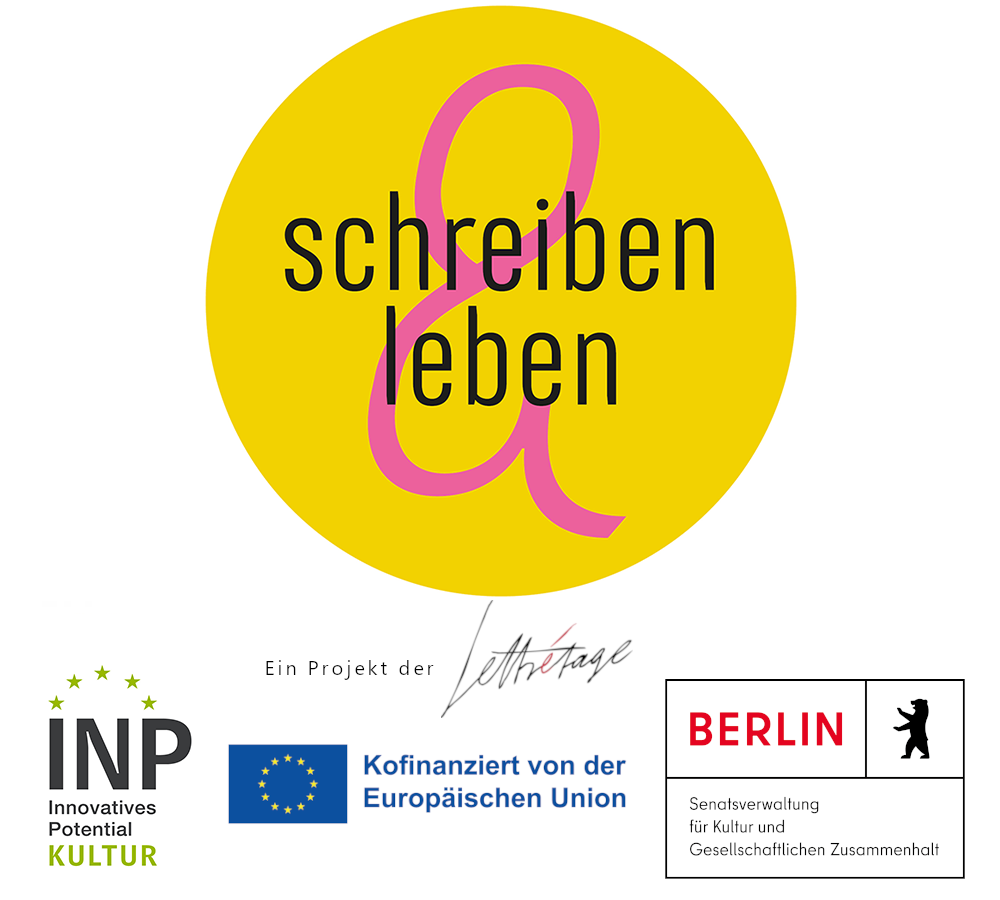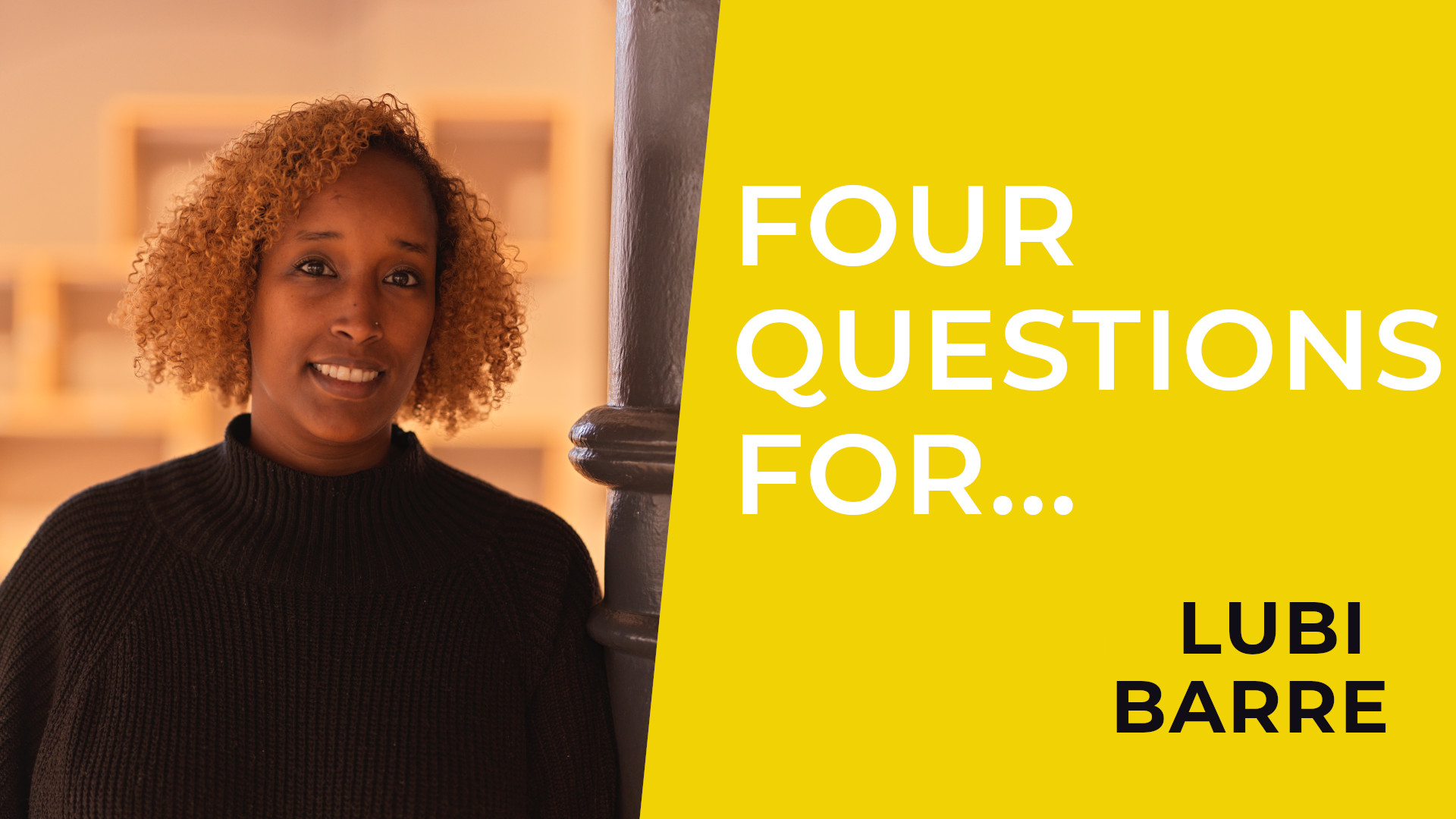In this interview series, we introduce literary freelancers. Whether author, translator, editor or event organizer: Each and every one has made his or her way into freelancing. What was it like for you, Lubi Barre?
Introduce yourself briefly: Who are you and what do you do in the literary industry?
I am a writer who also curates and moderates. I write short stories and poetry. I co-curate the independent readings series AHAB with Jonis Hartmann and Sasha Preiss. Recently, I co-curated the conference Breaking the Canon with Kampnagel. Currently I am a co-curator for the diverse, multi-disciplinary Hamburg based festival Fluctoplasma. Four days filled with art, discourse, and diversity. I am proud of this festival because it particularly represents those in our society that are underrepresented in the arts. I often feel this city exploits them through diversity campaigns and marketing but does nothing to service them. Fluctoplasma is here to highlight our city’s vibrant, booming, and extraordinary individuals and collectives with diverse backgrounds and most importantly, this festival was founded by people of color. Fluctoplasma is all about inclusion to bring everyone in Hamburg together to exchange with one another.
What was the biggest challenge at the start of your career?
This is a topic I speak about often and comes from my experience and observations since living here for the past 8 years. I am an English language writer in Germany which means I was automatically locked out of the literature scene in Hamburg. I must stress Hamburg as I know that Berlin is different in this respect. I did not know German nor did I write in German. So, access is something I had to seek out with intent. It required effort, resilience, patience, and a belief that it would happen, even when I couldn’t see it. You must have a type of blind ambition that gets you through the many, firmly closed doors you encounter and a resourcefulness that allows you to bypass the barrier language is used in this country to keep out those who do not speak it. As a writer this can be difficult as it means you are forced to step out of your comfort zone. You must learn how to advocate for yourself. You do not have the luxury of just doing your work, not if you want to be a working writer in Germany. Some luck is also needed and for me that came in the form of Jonis Hartmann. Yes, I did the hard work that led me to meeting him but he opened the door of the literature scene for me in Hamburg, and I will always be grateful to him. Still, I am often one of the few writers at literature functions that writes in English or a language other than German. That is why, in anything that I do, I highlight this problem and I try to open as many doors as possible to diversify this canon that keeps people like me out. Literature in Germany can only benefit from diverse voices and languages. Moreover, non-German language writers deserve to write in their language, to have the same access to financial opportunities, to have places to share their work. Why shouldn’t we be included to continue our work, to be part of the cultural discourse, to have a voice in a country we call home?
What has been the most important realization in your career up to this point?
Everything we do is comprised of a sum of decisions and experiences. There have been many realizations in the different phases I have had as a writer and many more to come. One thing I have thought about lately is how it’s helpful and important to be flexible. As writers we sometimes tend to focus our work as a linear ambition. We focus on writing that book and publishing it. We are limited on our focus. But our writing and work can be fulfilled in many forms, in territories we wouldn’t venture because we may see ourselves only as a poet or a writer of fiction etc. If we allowed ourselves to be open to other projects, we would see how valuable it is, not only in experience but also financially. Diversify your talent, don’t confine your work to one box. Try writing that theater play or opera. Say yes to curating that conference or festival. Accept that invitation to moderate that talk. You may find you like it; you may find it is not for you. In the end, everything informs your work as a writer and the journey when you allow your work to be utilized in a different context may in the end lead you to your ambition all the same.
What advice would you give to people starting out in your field of work?
That depends on the country. In Germany, if you do not write in German, you must find someone who will bring you in the scene. Someone who can help you navigate the many resources that are readily available to German writers, such as residencies, awards, festivals, and subsidies. Even then, most are only for German language writers. But there are some things for us and it is necessary to understand how to gain access and then learn to navigate it. Broadly, I can advise to seek out other writers, find your community. Go to events even if you don’t know the language as its informing to be with your peers. Find a writing group to join or start one. That one is important, to create something, like a writing group, if there are none where you are. Do not compare yourself to others, everyone has their own journey. Everyone has a story to tell. Most of all, just write. Write like no one is looking. Read like your life depends on it.
Lubi Barre, born 1982 in Paris, France, is a writer of poetry and short stories. She published her story “Goodbye” in 2016 in the anthology “My Old Man” at Cannongate and in August 2020 in the German language collection “Here and There” at Punktum Verlag. She is the co-organizer of the quarterly reading series AHAB and a member of the Residency Writers Room. From 2017-2020 she was co-organizer and co-moderator of the reading series Hafenlesung. Currently she is the co- curator of the Fluctoplasma festival in Hamburg.
Picture in Header: © Andreas Klingberg
Do you want to tell your story and offer advice to newcomers in your field? Contact Philipp Böhm (philipp.boehm[at]lettretage.de) and answer our four questions!


Comments are closed.